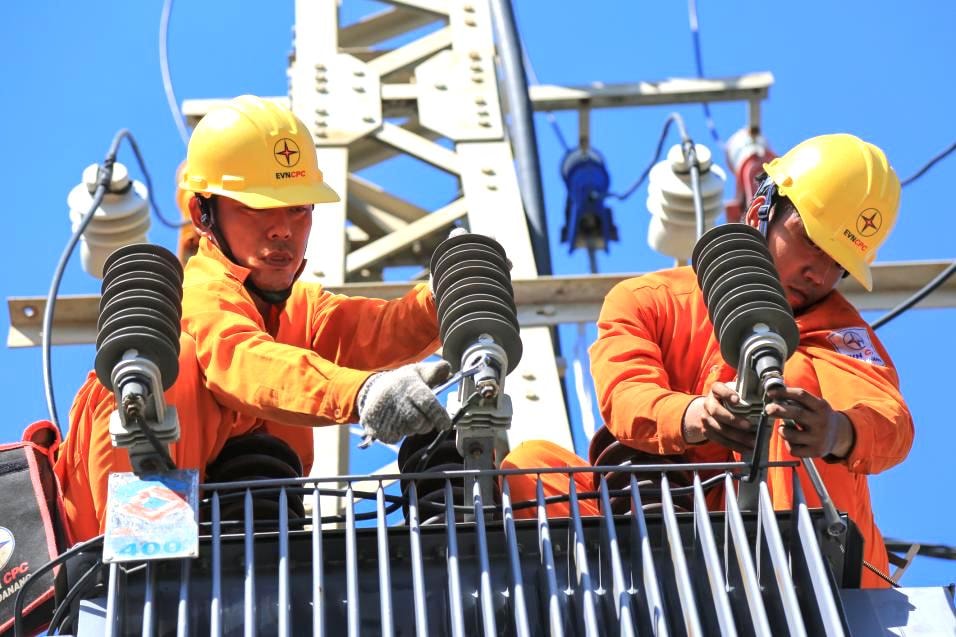Electricity price: Need to share and be fair
During the years of fighting the COVID-19 pandemic, when the world's coal and gas prices skyrocketed due to geopolitical instability, the State decided to keep electricity prices unchanged to support businesses and people to overcome that particularly difficult period. Vietnam Electricity Group (EVN) at that time had to shoulder a huge cost for society, nearly 45 trillion VND, not because of poor management, but because of the major policy: Stabilizing the socio-economy, ensuring social security.

This is a necessary sharing in a difficult and unprecedented time of challenge. Now, including the reasonable cost part as prescribed that has been "put aside" in the retail electricity price is not to force people to bear the loss, but simply to calculate correctly and sufficiently for the amount of electricity consumed during the COVID-19 period. This is the fairness that allows the electricity industry to continue investing and ensuring energy security for the country's development.
The figure that the public still calls a "loss" of nearly 45 trillion VND is actually not a loss in the sense of corporate governance, but a valid expense that has not been allocated to the price. This expense has been officially confirmed by the State Audit. In other words, this is the "temporary revenue shortfall" that EVN had to bear during the pandemic, so that electricity prices do not increase according to coal and gas prices on the world market. The Government's current consideration of amending Decree 72/2025/ND-CP to allow this expense to be included in the retail electricity price is not "pushing losses to society", but simply calculating correctly and fully the costs that have arisen in the past.
In a market economy, the selling price must reflect reasonable costs. If actual costs increase but the selling price remains the same for too long, electricity suppliers will lose financial balance and will not be able to mobilize capital for new investments. The risk of power shortages and energy insecurity will be direct consequences that the entire economy will have to bear. Therefore, adjusting electricity prices to compensate for this unaccounted cost is not to "rescue EVN", but to protect the stability of the national electricity system.
Social concerns, of course, are still very important. People fear rising electricity bills, businesses worry about rising production costs. Another concern is whether some of these costs are due to poor management. Therefore, the key principle must be maintained: Only reasonable, valid, independently audited costs should be included in electricity prices; any administrative mistakes or non-transparent spending must be eliminated.
International experience also shows that this is normal. Thailand applies the Ft (Fuel Adjustment Tariff) adjustment mechanism every 4 months, adding/subtracting fuel costs from electricity prices. Korea adjusts quarterly, sometimes increasing sharply when imported oil and gas prices escalate.
In Europe, when the energy crisis broke out in 2022, the government did not force the electricity company to "take the loss" but used the budget to directly support vulnerable households and businesses.
The common point is: Price must go with cost, and social security is handled by social policy, public and targeted.
For Vietnam, the allocation of costs not included in prices during the epidemic period is It makes sense, because this is a real cost, only temporarily "postponed" to share the difficulties with the whole society. Now, calculating correctly and sufficiently is necessary to ensure market signals, attract investment, especially in renewable energy and grid infrastructure. But for this policy to be reasonable, 3 conditions are needed:
The first,Follow a soft roadmap, gradually distributing over many periods to avoid price "shock".
Monday, have targeted social security policies, keep prices low for poor households, and provide direct support to vulnerable groups.
Tuesday,Ensure absolute transparency, clearly announce cost components, audit reports, allocation roadmap, and commit to EVN to improve governance and save costs.
Electricity cannot be cheap forever if costs have increased, but it is important to make society understand that this is not about sharing losses with EVN, but about paying back reasonable costs that have been "put aside" during the special period of the pandemic. When policies are implemented in a transparent, fair and responsible manner, people will see this as a difficult but necessary choice to help the electricity industry operate stably and ensure long-term energy security.
We have gone through the most difficult days of the pandemic together with sharing. Electricity prices were kept unchanged to reduce the burden on millions of households and businesses, and at that time, EVN shouldered the costs that should have been included in the price for society.
Today, as the country has entered a period of normalcy, the principle of fairness must be affirmed: Reasonable costs incurred must be fully accounted for so that the power system can continue to operate healthily.
Sharing in times of danger is valuable, while fairness in times of stability is essential. Only when the power system is healthy can Vietnam ensure energy security, attract investment and steadily move forward to serve the cause of industrialization and modernization of the country, towards prosperity and happiness for all.
